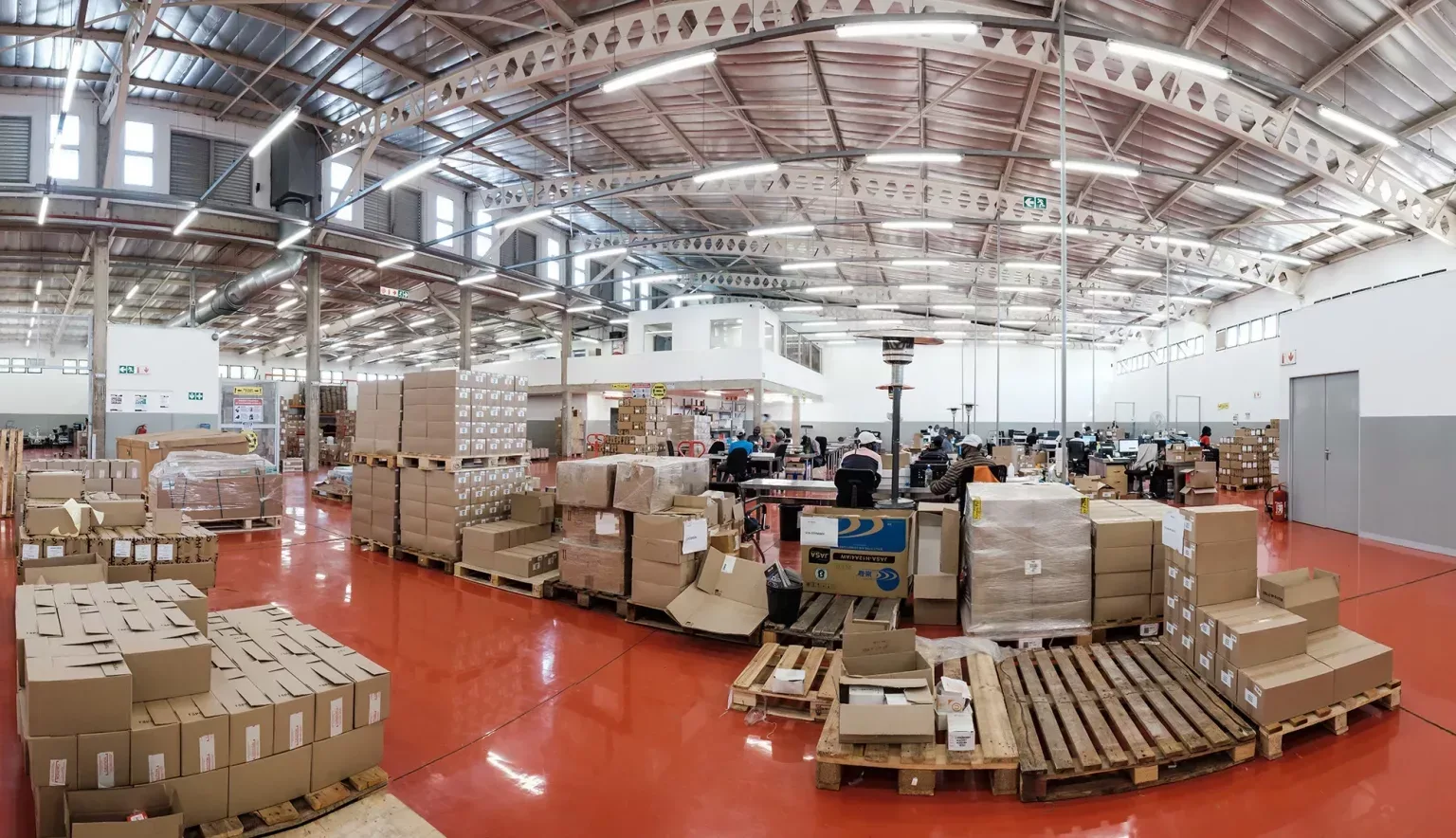INTRODUCTION
A COLLABORATIVE VISION
“We bought a group of companies called Blue Label Mobile – which we renamed Digital Ecosystems. That group of companies filled a lot of the gaps where we were missing pieces of technology to get to our ultimate strategy and goal,” Dunn explains.
By unifying the silos, the Group benefit from the discounts that apply to a wholesaler which then translate down the line as savings for individual consumers.
“If you are the biggest dealer of something you get better terms. We buy lots and we get credit from whoever we are buying from, on top of a discount because of the volumes. By the time that filters the whole way through the supply chain, where the poorest person is still paying a premium, and cash, we’re trying to cut out that whole sector, and improve access to connectivity related products and services by joining our ecosystem.
“As we align our three silos, we want those people to enjoy the bulk benefits that we get, and share in our commercial gains,” he elaborates.
In this visionary system, the aforementioned poverty tax is allayed and consumers can benefit from a poverty discount.
“Say Mrs X has got one of our SIM cards. She’s also bought a phone from us that we’ve managed to finance at low interest rates, and hence are able to supply at far more affordable prices through the value chain. That person can then buy their airtime and data on an app at the price that we get it at – not the middleman price. We can let them play in that whole ecosystem with a single tap of the phone. Any rebates that we get from the networks, we can pass on to them for their own benefit,” Dunn explains.
“It becomes a washing machine if you like, of using the same money over and over again.”
Thereby, DNI Group implement a system that encourages user loyalty by rewarding loyalty and positive behavioural change.
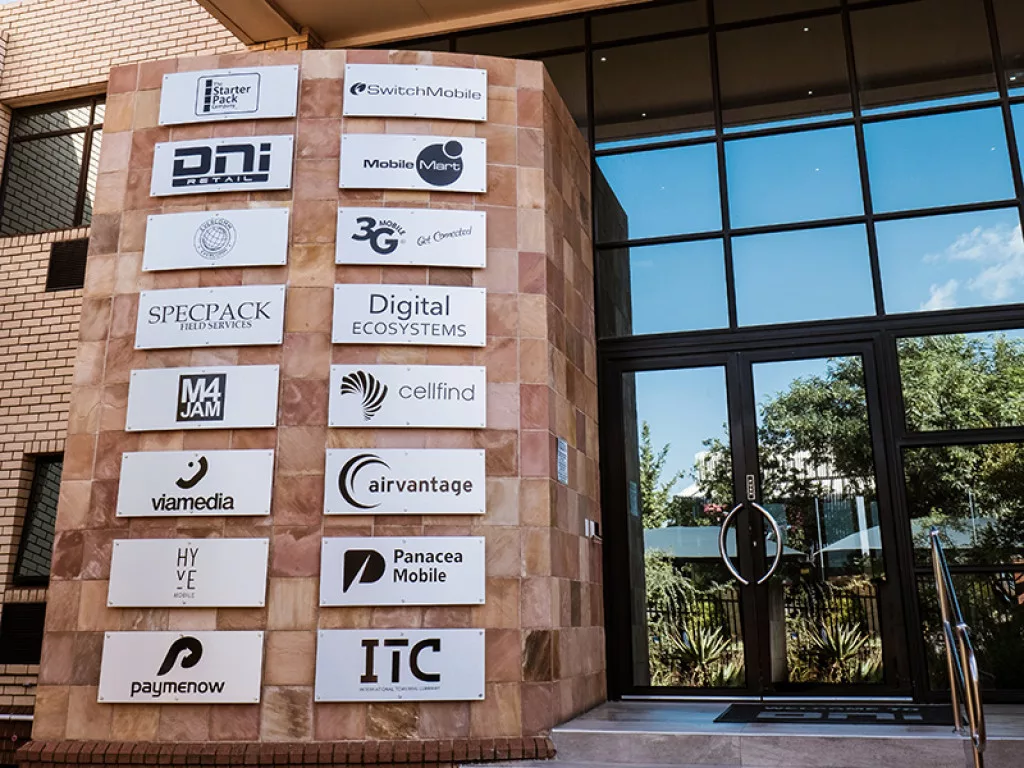
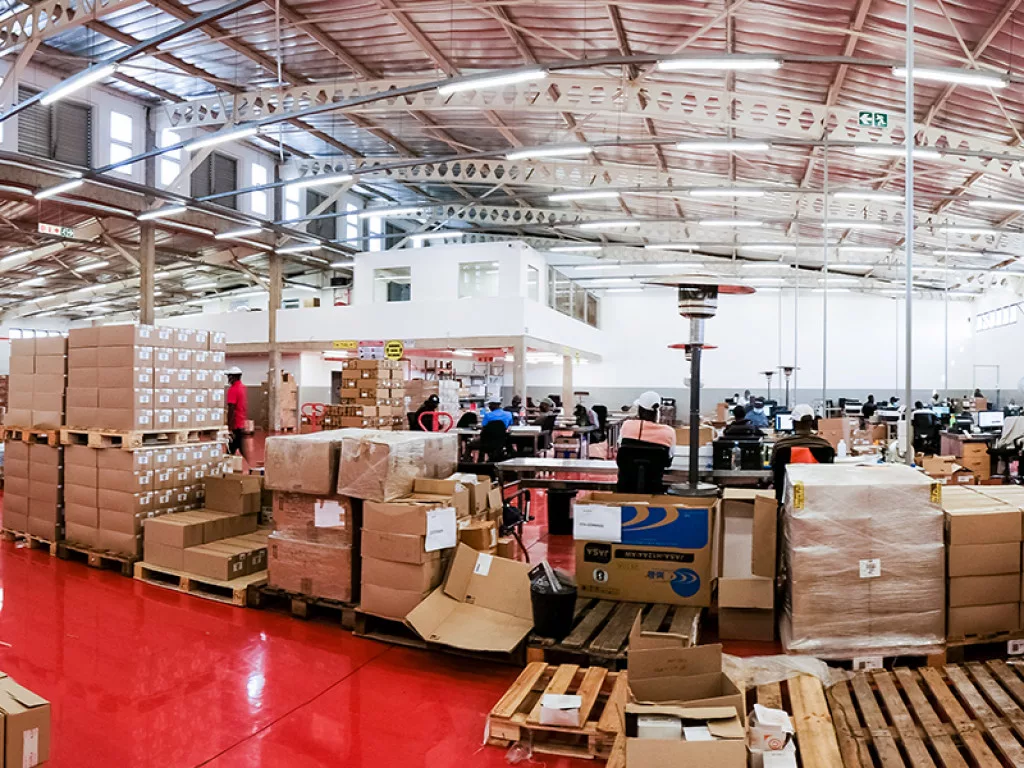
POWER IN PEOPLE
“I realised that this is actually about financial literacy. PayMeNow works on a rewards model – the more financial literacy modules that you watch and listen to, the cheaper it becomes. It gets to a point where you can get your salary advance for free.”
After running a test case within DNI itself, Dunn found that pride was a big barrier for employees to approach their boss if in desperate need of finances. Instead, many workers turn to “loan sharks” from within their township, borrowing with exorbitant interest in a harmful downwards spiral.
“By converting monthly into weekly, say halfway through the month you’ve earned £500 – you will have access to a quarter of that,” Dunn explains.
“What I am trying to do is educate the mass market on financial literacy and change it from a borrowing world, to a saving world. Then, to take that little bit of disposable income that they have and stretch it,” he concludes.
DNI GROUP ARE PIONEERING THE GIG ECONOMY
A key area of focus for DNI has been the advent of South Africa’s developing gig economy.
“The gig economy is something that is untapped here. There’s a massive informal market but there’s a whole gig economy that needs the fourth industrial revolution,” Dunn explains.
“You can’t go and employ 10 million people tomorrow – the economy doesn’t have the jobs, but there are gig jobs that can go from big to small; surveys, learning apps, anything that people want out there. It is micro jobs, taking from big and giving it to small – it is activating the crowd.”
This is where the Group’s technological investments within DigiCo are instrumental. Most relevant is M4JAM, a DNI subsidiary that Dunn and his team colloquially refer to as ‘the uber of underemployment.’ It is a micro jobbing platform that offers temporary work for people based on geolocation data that has been matched with their personal profile and criteria for wages, radius and type of labour.
The site’s popularity is testament to this untapped potential.
“That platform has over 800,000 users already. We only had 200,000 pre-COVID, because people became desperate for disposable income. So, we gave them the ability to earn on their phones, by either learning about financial literacy, answering questions, taking modules, or doing micro jobs for us. The reward is to an e-wallet, which can be redeemed in airtime, electricity, food vouchers – essentially your basic services,” he expands.
“If companies try to employ consultants to assist with projects, the cost is often massive and it takes months. But if you go directly to a crowd (which M4Jam enables via micro jobbing), then information and insights can be discovered in a day.”
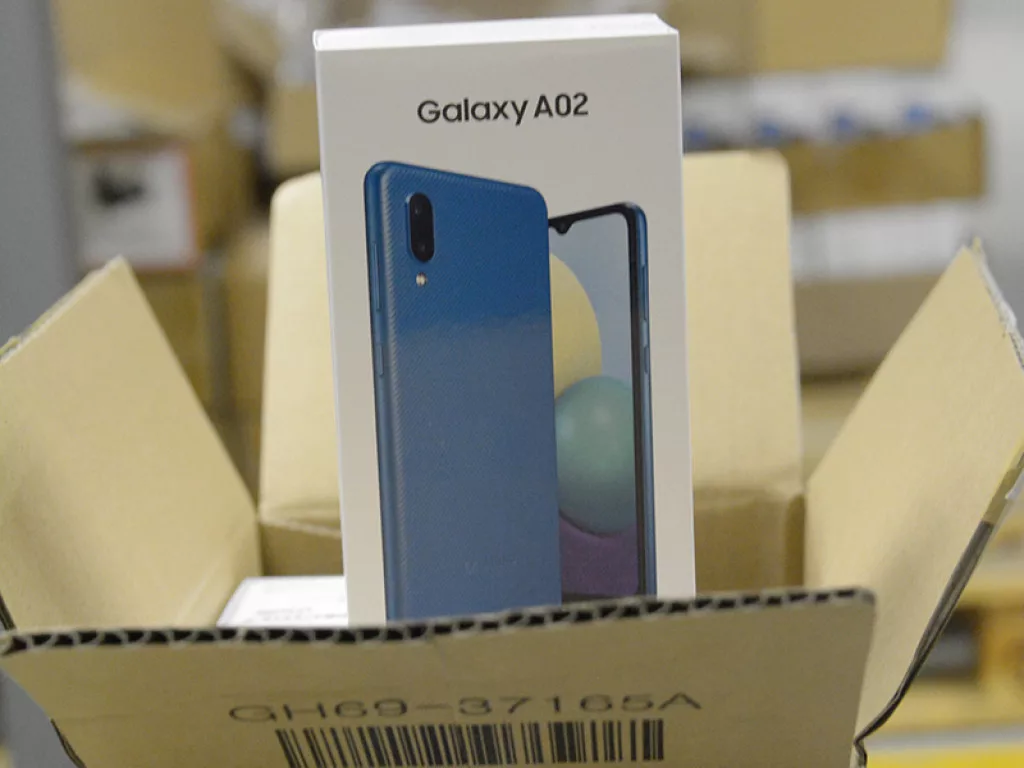
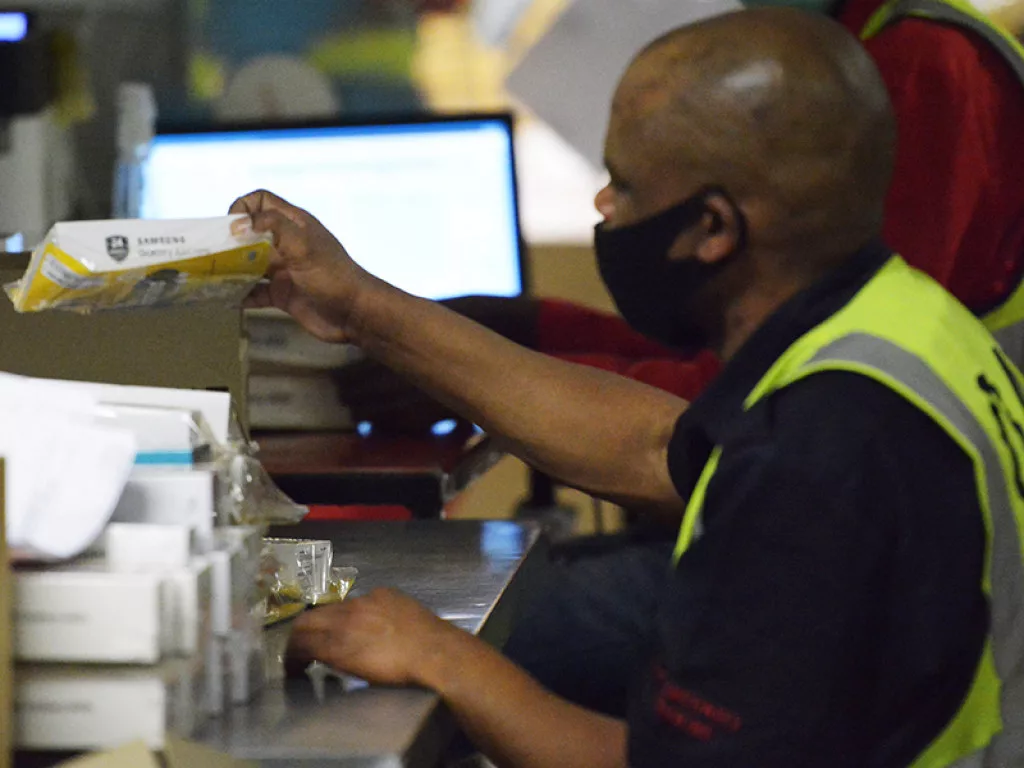
A NEW CHALLENGE FOR DNI GROUP
The coronavirus pandemic continues to wreak havoc across the continent and has seen an unprecedented shift for DNI Group.
Dunn describes working through this period as, “stressful, but very exciting and dynamic. We were learning by the hour and having to adapt.”
Fortunately for a company with a primarily virtual product, the disruptions in supply amidst pandemic disruption were relatively minimal, consisting mainly of operational challenges experienced in the warehouses of DNI’s hardware division when it was forced to close during the six-week Level Five lockdown introduced at the end of March.
“The sector was eventually listed as an essential service, so we were having to run a warehouse but with only 30 percent capacity. To keep up with deliveries, we had to open multiple sites to keep up with the regulations. There were more costs but the costs were offset by the upside.”
That upside arrived as South Africa’s economy began to re-open, with the ensuing pent-up demand for hardware and a surprising permanent shift in consumer attitudes.
“What’s become more permanent is the contribution from companies towards their staff, to give them more relevant or speedy devices, or access to better connectivity at home. This has meant that we are at record highs across that entire business,” Dunn elucidates.
“We thought that would be hit the hardest, and it was but that was short-lived,” he adds gratefully.
As the catalyst to accelerate digitalisation, for telecommunications companies, the pandemic was not without its advantages. Indeed, DNI Group found that RPU (revenue per user) increased by approximately 20 percent.
“We are incredibly thankful for being in the ICT sector amidst this awful pandemic. We always have our best months in April and December when people are at home spending time on their phones due to holidays. We ended up with 12 months of that…so far,” Dunn comments.
With the advent of remote working, DNI were well-positioned at the centre of this dynamic market shift to take advantage of the disposable income freed up by the population no longer travelling to work, whilst also providing services to the companies and businesses forced to adapt overnight to remote working.
“Specifically in South Africa, a massive amount of the working force’s disposable income goes towards transport. That number is estimated to be anywhere between 20 – 40 percent of disposable income – just the cost of getting to work.”
During the nascent days of the pandemic, and the attendant “panic streak” that ensued amongst stakeholders and investors, DNI Group were quick to instil confidence amongst their workforce and provide needed reassurance.
“We did an analysis to the best of our ability about what we thought would happen – some of it we got horribly wrong, but the two main points we took away from it really took us by surprise. Namely how big the shift would be towards telephony and online, and secondly, we never took into account how quickly working from home would become the new norm,” Dunn adds.
As a company that takes care of their own, staff welfare was a key concern. Subsequently, they were all kept in the loop with regular reports and updates.
“We chose to be hugely transparent and ensure the message was coming from the boss. We are fine, your salary’s safe, this is what the rules are going to be – please stay home and stay safe. Let us know if you need anything, but as a company, we’ve got this.”
“We’re a family, we’re not a business,” he concludes.
AN ALTRUISTIC OUTLOOK
As a working body, DNI Group whole-heartedly embrace South African ‘Employment Equity’ legislations, which seek to promote inclusion in equity, representation and job creation.
“When it comes to acquisitive growth, we’ve always liked to keep the founders invested alongside us. We are not a company that often takes 100 percent.
“We empower our staff by maintaining them as equity shareholders, both in their entity and potentially in their silo if they would like to be there. That same level of ownership exists all the way through our business and is how we try and operate,” he explains.
At the heart of Dunn’s enterprise lies a patriotic outlook that is central to his philanthropic concern for his country and its inhabitants.
“It’s incredible what’s come out of South Africa. We really do have an amazing country with amazing vision. I don’t know if it’s all the sun we have,” he says with a smile.
“If any good has come out of Covid, what we’ve seen in South Africa is empathy,” Dunn adds.
Moving forward, it is this sense of moral responsibility and growing social empathy that defines the ecosystem Dunn aspires to create.
“We are driving a behaviour that we believe will create permanent and sustainable change in our country, and in time, others abroad too.”



